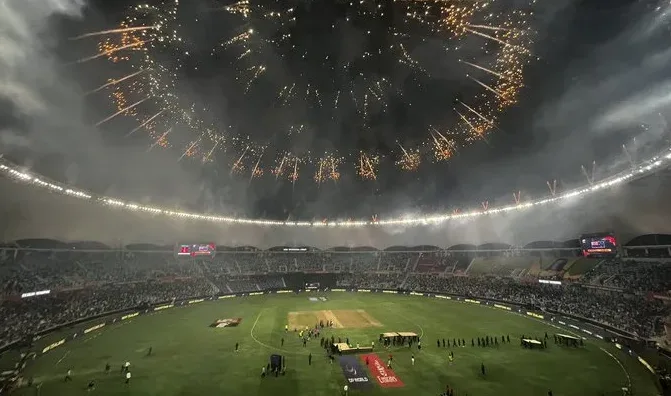Tilak Varma’s unbeaten 69 guides India to five-wicket Asia Cup win over Pakistan in Dubai
India held their nerve in Dubai to beat Pakistan by five wickets and clinch the Asia Cup for a record ninth time — but the victory was overshadowed by extraordinary post-match controversy.
Tilak Varma was the hero, striking an unbeaten 69 from 53 balls to guide India home with just two deliveries to spare. Yet after the win, players from both sides refused to shake hands, and India’s squad later declined to collect the winner’s trophy from Asian Cricket Council president Mohsin Naqvi, who also serves as chairman of the Pakistan Cricket Board.
“It’s one thing I have never seen in my career — a champion team being denied its trophy,” India captain Suryakumar Yadav told reporters. BCCI secretary Devajit Saikia confirmed the players’ refusal was a direct protest against Naqvi’s presence.
The backdrop to the controversy is grim: India and Pakistan clashed in a brief military conflict in May, further straining already tense relations between the two nations. Their cricket teams now only meet at neutral venues, with the Asia Cup in Dubai serving as the latest high-stakes battleground.
The final itself lived up to the billing. Pakistan, sent in to bat, looked on course for a commanding total after an opening stand of 84 between Sahibzada Farhan (57) and Fakhar Zaman (46). At 113-1 with just 44 balls left, they appeared in control.
Embed from Getty Images
But left-arm spinner Kuldeep Yadav tore through the middle order, claiming 4-30 in a devastating spell. Pakistan imploded, losing nine wickets for just 33 runs in a collapse that left them skittled for 146 with five deliveries unused.
India’s reply began disastrously, with three wickets tumbling in the first three overs. Pakistan scented a comeback, their bowlers roaring back into the contest and their fans turning up the noise.
Varma, however, held firm. Anchoring the innings with maturity beyond his years, he was ably supported by Shivam Dube (33) and Sanju Samson (24). Together, they steadied the chase before Varma guided India across the finish line with an ice-cool unbeaten knock.
“It is one of the best innings of my life,” Varma said afterwards. “It was pressured, but I wanted to stay in and finish the game.”
Pakistan captain Salman Agha admitted his side’s failings were self-inflicted. “It is a tough pill to swallow. We couldn’t rotate the strike properly, and that is the reason we didn’t get the score we wanted. We need to sort out our batting.”
The result capped a heated tournament in which the two rivals met three times, with India victorious on each occasion. The refusal to shake hands after the final, consistent with earlier matches, underscored just how deep the animosity runs both on and off the field.
Despite the tense political backdrop, cricket once again served as a stage for high drama. For India, the triumph reinforced their dominance in Asian cricket and showcased a new star in Tilak Varma. For Pakistan, the sting of defeat will linger — made sharper by the manner of their collapse when the title seemed within reach.
Yet long after the final ball was bowled, it was the chaos surrounding the trophy ceremony that captured global attention, leaving one of cricket’s fiercest rivalries mired in fresh controversy
